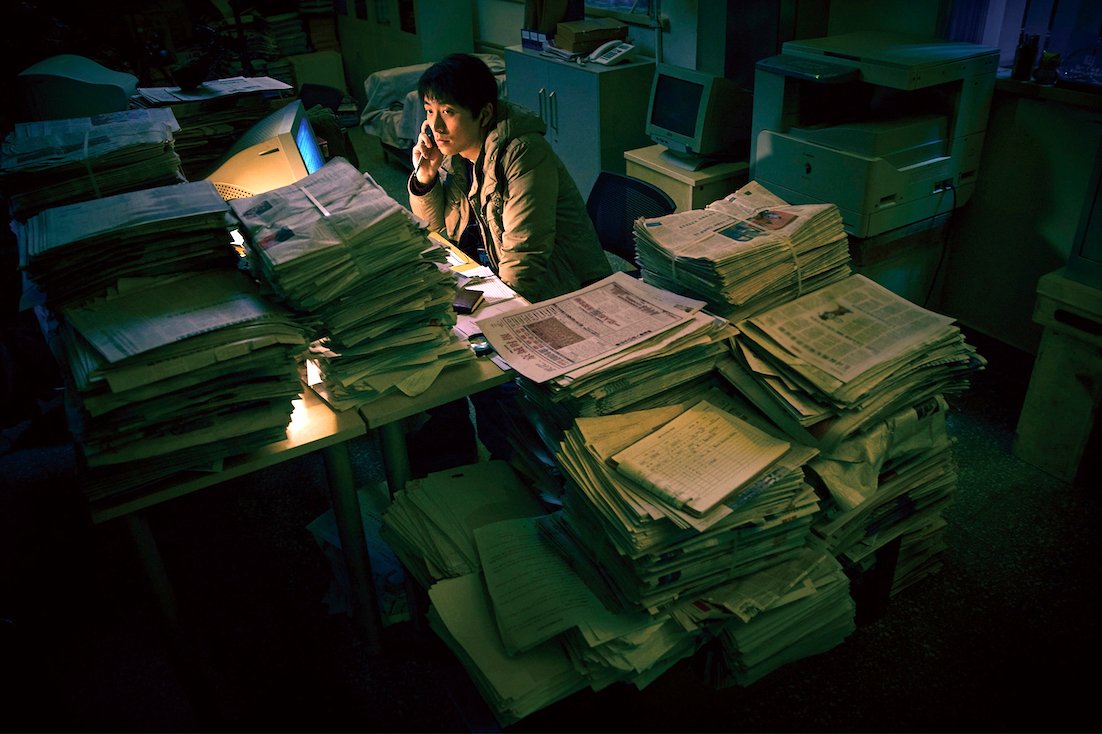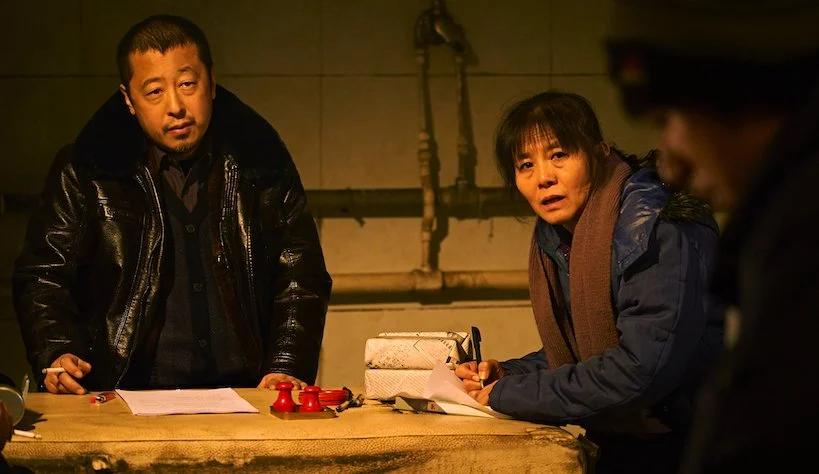Press Pass
After shadowing Jia Zhangke for years, Wang Jing takes on journalistic idealism for his feature directorial debut. Guess how it ends?
The Best Is Yet to Come
Director: Wang Jing • Writers: Chen Chengfeng, Huang Minmin Huang, Huang Wei, Li Jingrui
Starring: White K, Miao Miao, Song Yang, Wang Lie, Zhang Songwen, Bai Hongbiao
China • 1hr 54mins
Opens Hong Kong May 25 • I
Grade: B-
There is something fist-pumpingly satisfying about a good journalism movie. Whether the reporters are heroes (Spotlight, the gold standard All the President’s Men) or villains (Network, Shattered Glass) it’s cathartic to watch the bad guys get caught with their pants down or the bad reporter get caught making a mess of the Fourth Estate. At a time when good journalism is under fire – Twitter does not count as journalism, especially now – it’s nice to be reminded that good journalism can have an impact and change the world, even if just a little bit, for the better.
Needless to say, and despite a conspicuous lack of state approval, that’s the righteous gist of The Best Is Yet to Come | 不止不休, the first feature by Jia Zhangke protégé Wang Jing. The film, about an untrained, green reporter at a Beijing daily blowing open a massive conspiracy (not a government one, natch), has been lingering in the ether since making its debut in the Orizzonti section of the Venice International Film Festival in 2020. No surprise there. Lots did linger, rightly so, and the transparently titled The Best Is Yet to Come may benefit for the wait. What is a surprise is that the film has been something of an arthouse hit in China, where Reporters Without Borders claims about 100 journalists are currently in jail. Shot in a Jia-ish, semi-verité style but without his more controlled compositions, The Best has a scrappy aesthetic that suits the envelope-pushing narrative – until it doesn’t. Still, it’s an impressive debut, and when it works, it really, really does.
Wang is blessed with support from the Sixth Generation titan’s regular crew – Yoshihiro Hanno contributes a fairly spectacular, propulsive score, DOP Yu Lik-wai (Ann Hui’s Ordinary Heroes, Pang Ho-cheung’s Dream Home, and his own oddball thriller Plastic City) mans the camera and Matthieu Laclau is editor – and so until the film goes off a cliff in the last act and supplies the requisite positive spin on the great things China is on the verge of accomplishing it’s a tense, classically structured newspaper thriller, where the intrepid reporter gets a draconian policy repealed and some dignity restored to 100 million people.
It’s 2003. China has been in the WTO for a couple of years, everyone’s heading to Beijing to get rich, SARS is under control (ahem), and China’s about to go into space. But back on the ground, eager, young country boy Han Dong (social media star White K/Bai-Ke) has headed to the big city with his best pal Zhang Bo (Song Yang), who’s on his third attempt to get into grad school, and houseplant/girlfriend Xiaozhu. (Miao Miao). Dong’s having no luck securing his dream job in journalism as a high school drop-out when pitted against Peking U alums. Still, he gets the attention of Jingcheng Times star reporter Huang Jiang (Zhang Songwen) and soon finds himself apprenticing to Huang, and uncovering a widespread scheme to fake clean health reports for Hepatitis B carriers. At the time, Hep B carriers were systemically barred from jobs, housing and school. Dong finds himself in a moral and professional quagmire when he’s compelled to pick between running his story – admittedly the doctors faking the reports and the brokers are breaking several laws – or finding another angle. You see, Bo has Hep B.
No one could have guessed The Best Is Yet to Come would echo the COVID hysteria that swept the world when the film was finished, so the resonance with the story’s anti-scientific illogic is freaky now. But this same panic happened with HIV/AIDS and it will happen again, so The Best’s main thrust, about compassionate, considered reporting, journalistic responsibilities and the power of the press to affect change holds, even if everyone, everywhere seems to be actively stymieing that.
But that’s not what Wang’s film is about. Wang’s film is about a more nostalgic time when reporters like Southern Metropolis Daily’s Han Fudong (upon whom Han Dong is based) were able to bust shady coal mine owners trying to hide misdeeds from the authorities (Jia cameos as one such shady mine owner). And for two full acts it cleaves closely to that idealism, putting Dong through his intern paces and grinding out copy after exhaustive research. Yu’s tight framing adds a claustrophobic, shoulder-to-shoulder energy to Dong’s navigation of the buzzing city when it’s not injecting a documentary vibe through hand-held interview sequences with the victims of discrimination. But the melodramatic home stretch where Dong sees the light – these people face bias just like him! – Everyone Does What’s Right, and vindication comes all round is gag-inducing, and it neuters Wang’s grittier instincts. Is this, as it’s been said, the Chinese All the President’s Men? No, more like the middling The Post. — DEK



